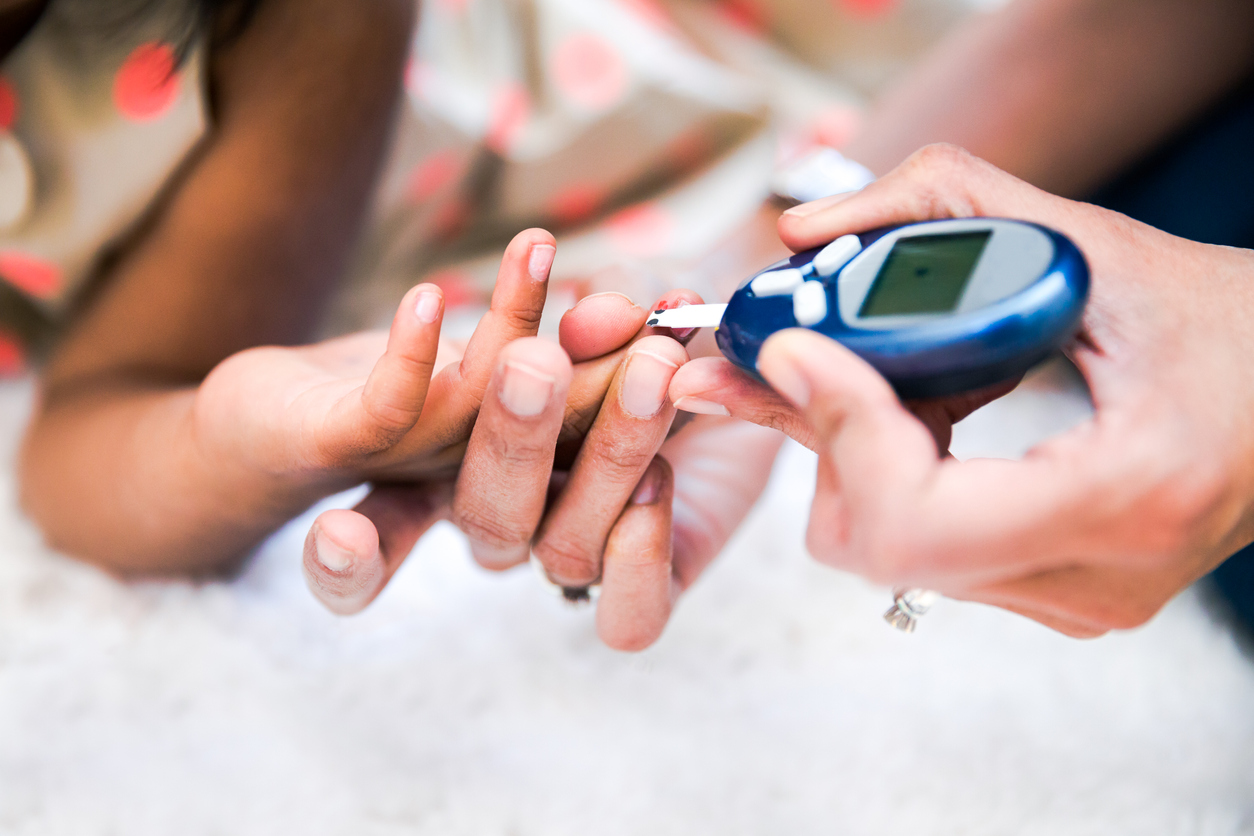Blood sugar checks are procedures sometimes recommended by medical practitioners in order to measure the glucose levels in your blood. High or low blood sugar levels can lead to symptoms of illness and sometimes even serious complications. Diabetic patients can use this test to help maintain their blood sugar levels during treatment. Blood sugar checks can also be done as part of a routine checkup.
Blood sugar checks are designed to:
- Determine whether blood sugar levels are high or low
- Diagnose diabetes
- Monitor a medication’s effects on blood sugar levels
- Track whether treatments for blood sugar levels are effective
- Help determine how exercise and diet influence blood sugar levels in an individual
- Look for signs of illness or stress
Types
Two methods are used to check blood sugar levels:
- “Finger prick” test where a small sample of blood is taken from a fingertip and then analyzed by a small machine called a glucometer.
- Laboratory test where blood is drawn from a vein and then sent to a lab for analysis.
Blood sugar tests can be used to diagnose diabetes, hypoglycemia (low blood sugar) and more. Medical providers may also order fasting blood sugar tests, or a test called a hemoglobin A1C Fasting blood sugar tests help ensure that recent food ingestion is not impacting results. Hemoglobin A1C tests are used to evaluate average blood sugar levels over the past 90 days.
When to check blood sugar levels?
Your medical provider will come up with a plan to determine the need for blood glucose testing as well as how often it needs to be performed. A type 1 diabetic may need to check blood sugar more frequently than a type 2 diabetic, for example. Sometimes “spot checks” are done if a person is having symptoms of hyper or hypoglycemia.
Procedure
Most commonly a blood sugar meter, called a glucometer, is used to check blood glucose levels. The glucometer measures blood sugar amount using a very small blood sample. This sample is obtained by getting a drop of blood from a fingertip. This drop of blood is then placed on a disposable test strip, which is analyzed by the glucometer. The procedure works as follows:
- Before the test, wash hands to get the most accurate results.
- Prick the fingertip with the help of the lancet provided with the test kit.
- Touch the pricked finger edge with a test strip so that blood can be put on it.
- Insert the disposable strip into the glucometer.
The measurements of blood sugar levels will be taken immediately on the meter and will be displayed on the screen.
What is the target range for blood sugar?
Maintaining a healthy blood sugar level is essential for your overall well-being. Blood sugar monitoring helps you manage diabetes or immediately detect if you are at risk of developing it.
The target range for blood sugar can vary depending on factors like your age, health, and individual circumstances. However, in general, blood sugar levels are typically considered ideal when they fall between 70 and 130 mg/dL before meals.
After eating, your blood sugar should ideally stay below 180 mg/dL. Consistently monitoring your blood sugar can help you stay within these target ranges and manage your condition effectively.
Should I be concerned if I have high blood glucose results?
High blood sugar, or hyperglycemia, can lead to a range of symptoms, including excessive thirst, frequent urination, fatigue, and blurred vision. It’s crucial not to ignore these signs.
Untreated high blood sugar can be dangerous, leading to complications such as cardiovascular problems, nerve damage, and kidney issues. Regular blood sugar checks are vital to catching elevated levels early and taking necessary steps to address them.
CGM (Continuous Glucose Monitor)
People with type 1 diabetes may use a continuous glucose monitor (CGM.) With a CGM, a sensor is used to measure blood sugar levels every few minutes. CGMs are used with mobile applications that show glucose data including averages over time. Some devices give alarms on smartphone apps if glucose levels go up or down too quickly. Research has shown that patients with Type 1 diabetes have better blood glucose control when they use a CGM.
When should I call my doctor?
If you experience persistent high blood sugar levels or have symptoms of hyperglycemia, it’s essential to contact your doctor promptly. They can guide you in managing your condition and adjusting your treatment plan. Our team at AfterOurs Urgent Care in Denver specializes in blood sugar monitoring, ensuring you receive the care you need when it matters most.
Why Choose AfterOurs Urgent Care?
At AfterOurs Urgent Care in Denver, we understand the importance of regular blood sugar monitoring. We offer expert glucose testing and diabetes care to help you manage your health effectively. Our experienced team is committed to your well-being, and we follow a patient-centered approach based on our core principles. We provide timely care, ensuring that you receive the support and guidance required to maintain your blood sugar levels within a healthy range.
Don’t let high blood sugar go unchecked. Visit AfterOurs Urgent Care in Denver for comprehensive blood sugar checks and professional guidance. Your health is our priority.
Contact us
In case of blood sugar monitoring in Denver or any other urgent medical care assistance, AfterOurs Urgent Care offers telemedicine services appointments, where medical providers are available to offer assistance. Anyone who experiences signs and symptoms requiring urgent medical attention can simply book an appointment with AfterOurs Urgent Care to directly talk to an expert. If your medical issue is not appropriate for telemedicine, we will let you know and refer you to an in-person facility.
When to visit a doctor:
If you are diabetic, you should see a medical provider in order to avoid possible serious complications.
Blood sugar checks are available at AfterOurs Urgent Care.
For more information regarding blood sugar checks, see the following website:
https://www.afteroursinc.com/

